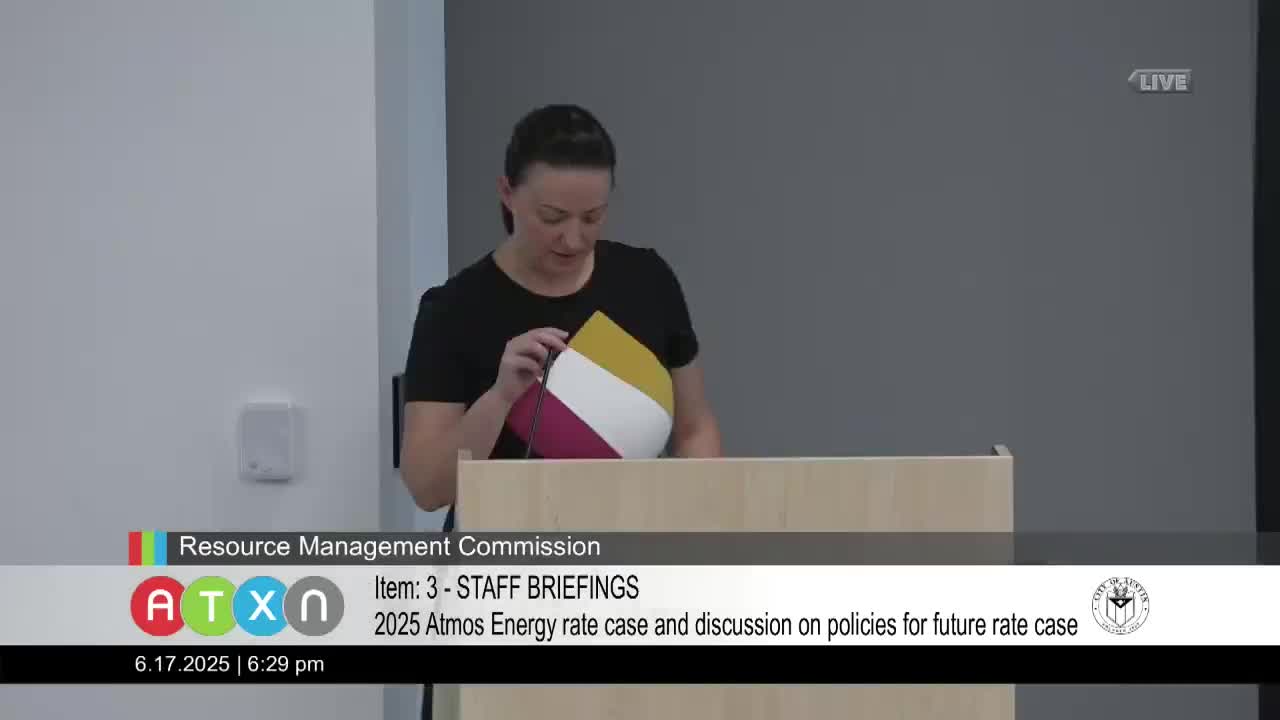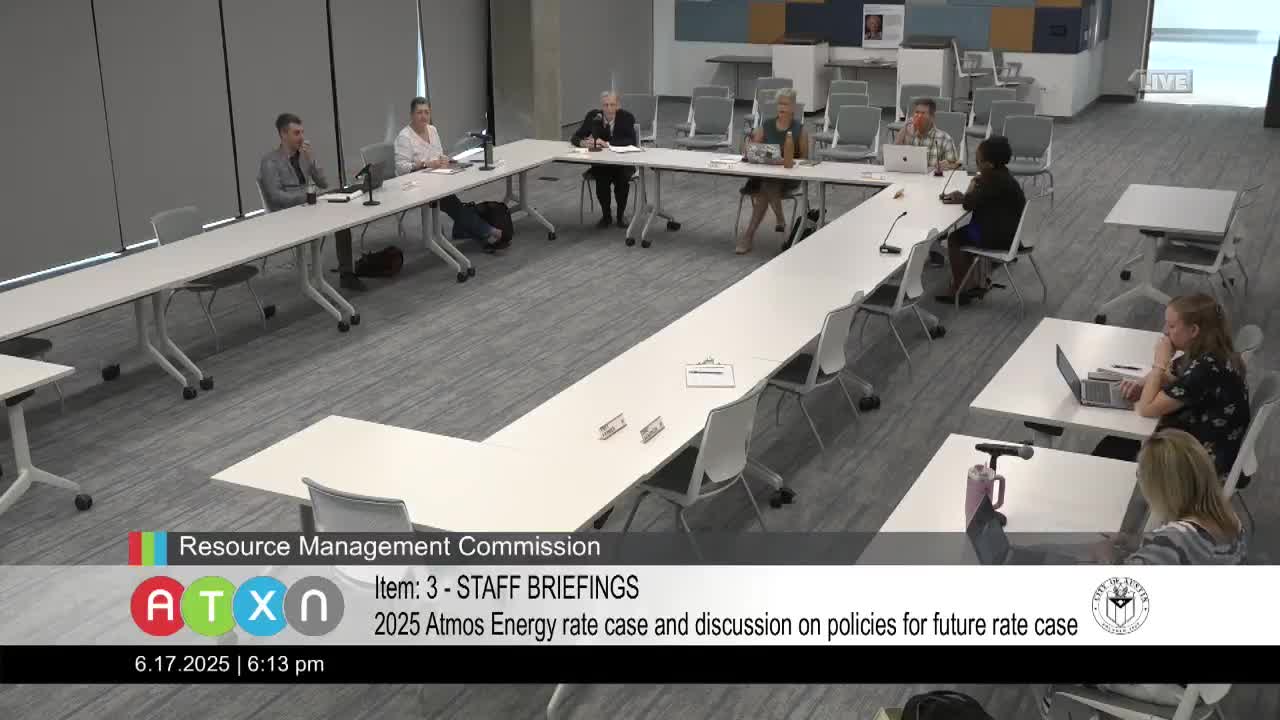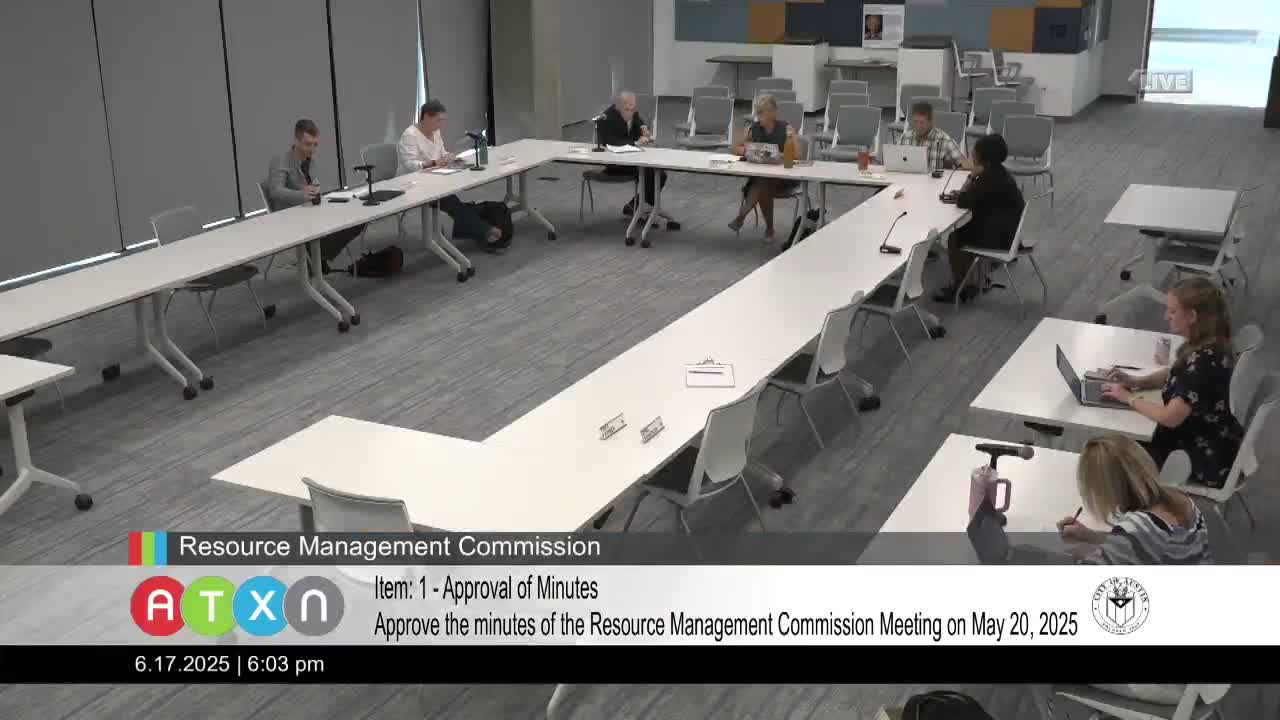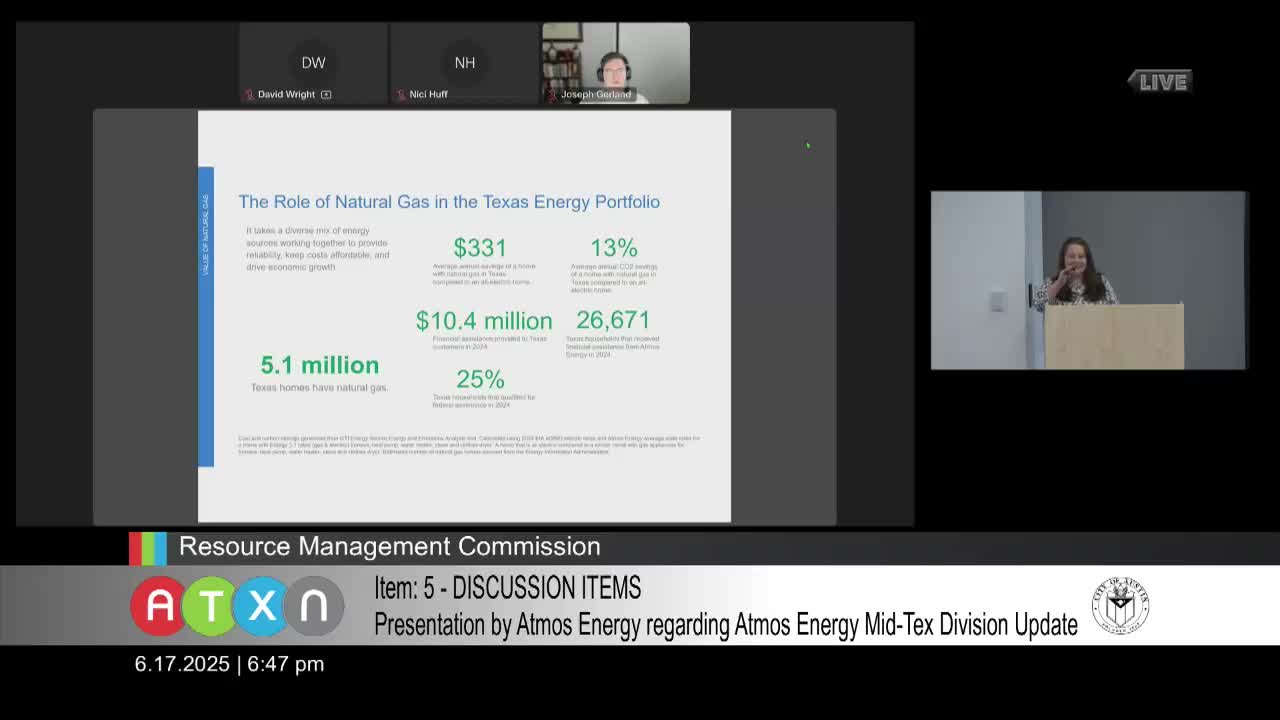Article not found
This article is no longer available. But don't worry—we've gathered other articles that discuss the same topic.

Resource Management Commission presses for public input as city staff readies Texas Gas Service franchise negotiations

Briefing: Atmos Energy settles 2025 rate case with ATM coalition; Austin residential customers to see base‑rate decrease

Resource Management Commission unanimously approves 15 Austin Water projects in drinking-water protection zone

